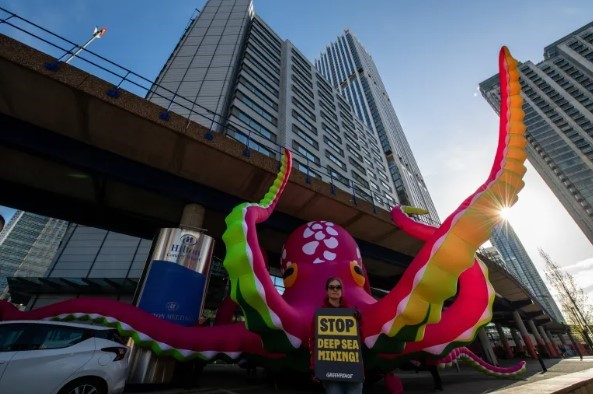
African Nations Must Assert Their Stance on Deep-Sea Mining
Africa's crucial role in shaping the future of the deep-sea mining industry and protecting marine ecosystems
As negotiations resume this week at the International Seabed Authority (ISA) to establish rules and regulations for commercial deep-sea mining in international waters, African countries hold a significant position in determining the future of this industry and the health of our oceans.
The ISA, a UN-affiliated institution established in the 1990s, aims to ensure that developing nations benefit financially from deep-sea mining, promoting equity in the use of global resources. With the debate intensifying, Africa finds itself at a pivotal moment where its decisions could greatly influence both the industry's trajectory and the preservation of marine ecosystems.
Advocates of the industry argue that deep-sea minerals represent a substantial financial opportunity, with potential profits in the millions. Through yet-to-be-determined financial and royalty mechanisms at the ISA, African countries could gain significant economic benefits.
However, our research, examining the full net costs of deep-sea mining for various stakeholders including mining companies, investors, low-income countries, sponsoring states, and nations involved in terrestrial mining, reveals a complex web of risks and rewards.
Mounting scientific evidence suggests that deep-sea mining could have devastating effects on fragile seafloor habitats. A single mining operation might release massive sediment plumes, disrupting light penetration and water oxygenation while dispersing toxins and radioactivity. The irreversible ecological damage could be immense, potentially exceeding the entire global defense budget of approximately $2 trillion.
While private companies and their sponsoring countries might see short-term profits, significant business model risks, litigation threats, and technological challenges raise doubts about the long-term economic benefits. As new data emerges, we must account for the potential irreversible damage, especially as humanity faces the triple planetary crisis of climate change, biodiversity loss, and pollution.
Moreover, advancements in technology, resource-efficient processes, circular economy models, and responsible mining practices could drastically reduce or eliminate the need for deep-sea mining. Proven technologies and measures could already reduce the demand for these minerals by around 58%.
Further complicating the issue are potential conflicts with land-based mining nations, where a sudden increase in supply could lower market prices and erode profits. Such scenarios necessitate an equitable compensation mechanism, highlighting the broader responsibilities of regulatory bodies like the ISA in ensuring fairness and sustainability.
In light of growing concerns about the environmental impact and true costs of deep-sea mining, an international movement supported by multiple nations – including Fiji, Mexico, Palau, Canada, Brazil, and Sweden – along with conservation organizations, financial entities, and business leaders, is calling for an immediate moratorium or precautionary pause on deep-sea mining until comprehensive scientific research can accurately assess its environmental impact and risks to deep-sea ecosystems. Unfortunately, no African states currently support such a moratorium or pause.
For Africa, the implications of deep-sea mining are profound. Nations must balance the questionable short-term economic gains against the potential long-term ecological damage. The minerals on the international seafloor belong to all of humanity as the common heritage of humankind, raising fundamental ethical questions. The environmental costs may far exceed the short-term economic benefits, compelling us to protect the delicate balance of our oceans and nature.
The debate on deep-sea mining will continue, but as new data and perspectives emerge, African countries must assert their voices on this critical issue. The decisions made today will significantly impact the future of our planet and the wellbeing of generations to come.